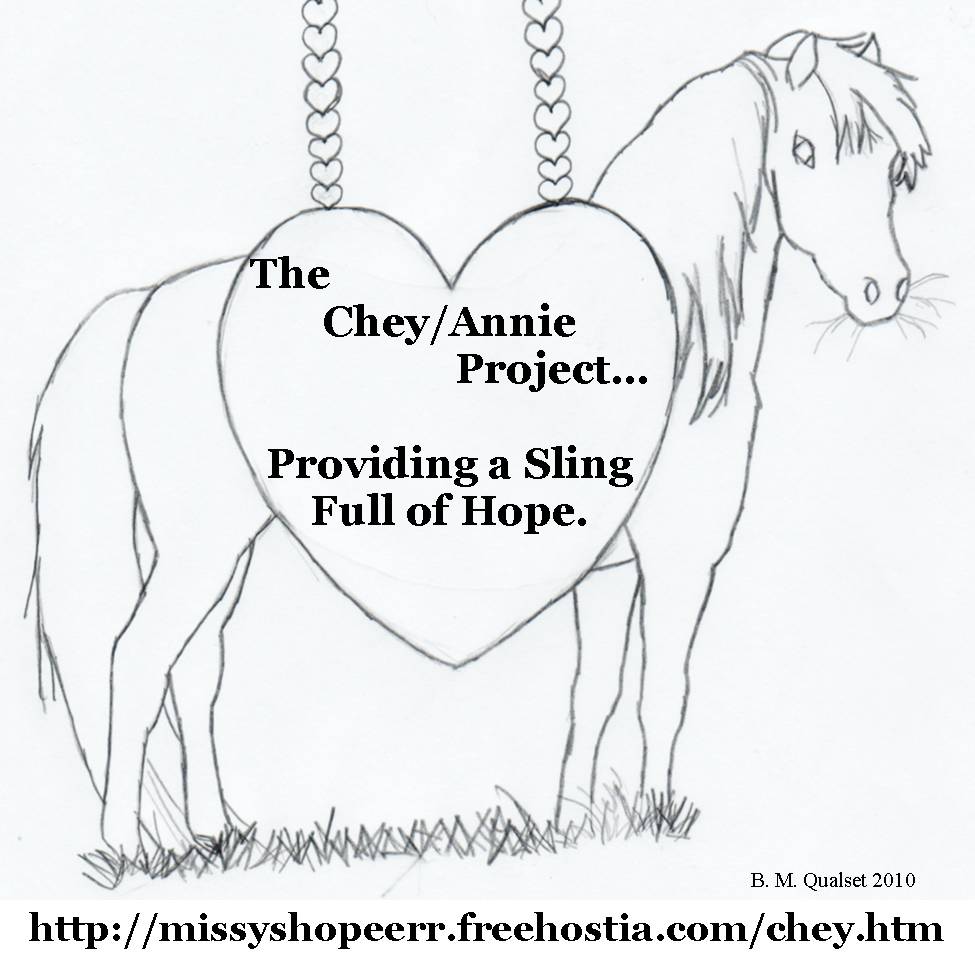

Missy's Hope Equine Rescue Resource
General Information:
Mission and Policy Information
Our Programs:
The Chey/Annie Project Fundraisers
The Chey/Annie Project Accounting
The Chey/Annie Project Future Sling Locations
Rescue Information:
Resources:
Pet Food and Product Warnings and Recalls
Congressional Information:
Letter Writing Campaigns For Horses
Horse Health Information:
Cushings/Insulin Resistance Information
Helping Your Horse Prepare For Being Blind
Articles Relating To Equine Blindness
Miscellaneous:
Adoption Tips
|
Tips for adopting a pet |
|
It is important to look into adopting a pet thoroughly. You want to be sure to find the friend that is right for you. Before even looking into a rescue, be sure that this is the right thing for you to do. Assess your living arrangements. Do you have room for the pet? Do you have time for the pet? Can you afford a pet at this time? Are you planning to care for the pet for the rest of its life? What will you do if you can no longer care for the pet? It is important to look at all these factors before adopting a pet. If you decide that adopting a pet is right for you, start by deciding what type of pet is right for you. 1.) Would you like a small pet? 2.) What kind of room do you have for a pet? 3.) Do you have a specific breed in mind? 4.) What do you want the pet for? Is it as a companion, or in the case of a horse, is it to ride? 5.) Where will the pet stay? I.e.: boarding for horses, etc. Once you have made these decisions, contact a local rescue. See the tips on the “Finding the Right Rescue” page. Do your research, and then begin looking at the pets. Remember that rescues often come with “baggage” depending on what they have been through. That should not deter you, but be sure that the “baggage” is something you are prepared to handle.
Remember that adopting a pet can be a wonderful experience, but it can often take time to find the right pet for you. These animals are often the most loving animal you will ever meet as the result of what they have been through. They can bring such joy into your life and they will receive the same joy for having you as their forever owner.
Written by: Brandi M. Qualset, 2007 |
| Pets Featured
belong to my family.
The cats on top are Puffy (large gray and white cat: he was brought home by my dog eight years ago) and Pistol (adopted from a rescue where I worked seven years ago. Her momma abandoned her at three days old and she has been with me ever since.) The two dogs are our puppies, Screwy (in the left picture) and Valient (in the right picture). They were found through an ad for free puppies and joined our family about 7 months ago. The final picture is of Bonnie. She joined our family just three weeks ago when her mother began killing off her kittens one by one.
|
|



